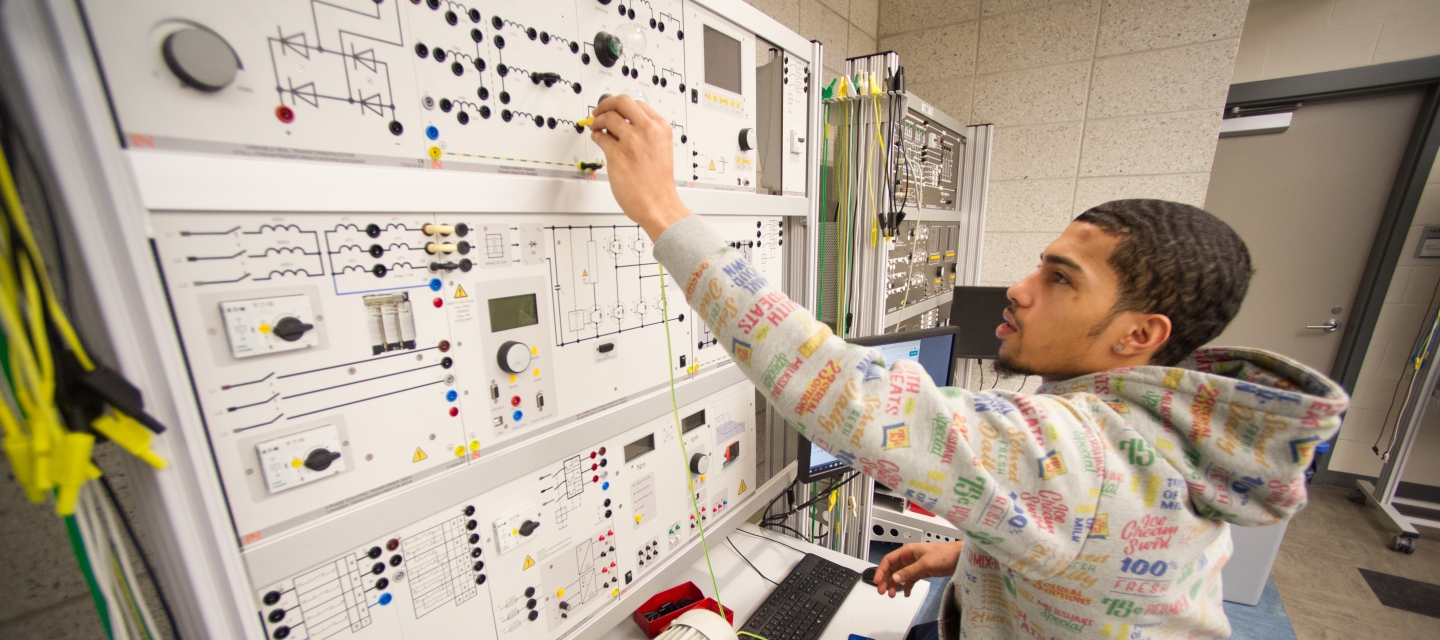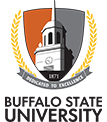
The DEGREE is ENGINEERING TECHNOLOGY;
The CAREER is ENGINEERING.™
A key facet of engineering technology programs is laboratory explorations. Essentially all technical studies are accompanied by lab exercises in which students learn to operate state-of-the-art scientific and technical equipment and to appreciate its capabilities and limitations. In comparison, engineering programs put much less emphasis on laboratory work.
An emphasis is on practice-based learning via hands-on laboratories using state-of-the-art equipment:
- Examining and solving “real-world” problems in the process of learning engineering
- Learning from faculty who are actively engaged with local, cutting-edge technology industries
- Internships opportunities with local industry via faculty connections
Our graduates are:
- Engineers that understand the key facets of problem solving in a “real world” environment
- Engineers familiar with the capabilities AND limitations of state-of-the-art technology
- Engineers that can identify and implement practical solutions using available technology
Accreditation

The Electrical Engineering Technology, Electronics program is accredited by the Engineering Technology Accreditation Commission of ABET, under the commission’s General Criteria and Program Criteria for Electrical/Electronic(s) Engineering Technology and Similarly Named Programs.
The Electrical Engineering Technology, Smart Grid is accredited by the Engineering Technology Accreditation Commission of ABET, under the commission’s General Criteria and Program Criteria for Electrical/Electronic(s) Engineering Technology and Similarly Named Programs.
The Mechanical Engineering Technology program is accredited by the Engineering Technology Accreditation Commission of ABET, under the commission’s General Criteria and Program Criteria for Mechanical Engineering Technology and Similarly Named Programs.
Electrical Engineering Technology, Electronics
The Electrical Engineering Technology, Electronics program prepares students to design, test, and fabricate solid-state circuits and systems (both digital and analog), microwave systems, and control systems.
Electrical Engineering Technology, Electronics graduates work in electronic and digital circuit design, testing, and manufacturing; microwave wireless communications and telecommunications; and control systems and robotics.
Electrical Engineering Technology, Smart Grid
The Electrical Engineering Technology, Smart Grid program prepares students to design, test, manufacture, and develop applications for electrical machinery, electrical power systems, and control systems.
Electrical Engineering Technology, Smart Grid graduates work in the fields of electrical power generation, transmission, and distribution; industrial, commercial, and residential electrical power distribution; as well as power systems protection, control, and monitoring.
Buffalo State's Electrical Engineering Technology, Smart Grid program utilizes ETAP Power Lab Program, an industry leading software package to solve engineering queries and provide the hands-on experience to better prepare students to enter the workforce.
Mechanical Engineering Technology
The mechanical engineering technology program is designed to give the students a broad education in the areas of mechanical design, mechanics, stress analysis, thermosciences, and manufacturing.
The program focuses on the application of engineering principles and prepares graduates for practical design and production work.
Graduates are prepared to enter the technology industry as designers, manufacturing technologists, plant engineers, and technical sales people and are employed by manufacturing industries, testing laboratories, marketing firms, consulting firms, government agencies, and other technology businesses.

